
OR
Army miffed with downsizing remarks of lawmakers
Published On: July 20, 2023 09:31 PM NPT By: Tapendra Karki
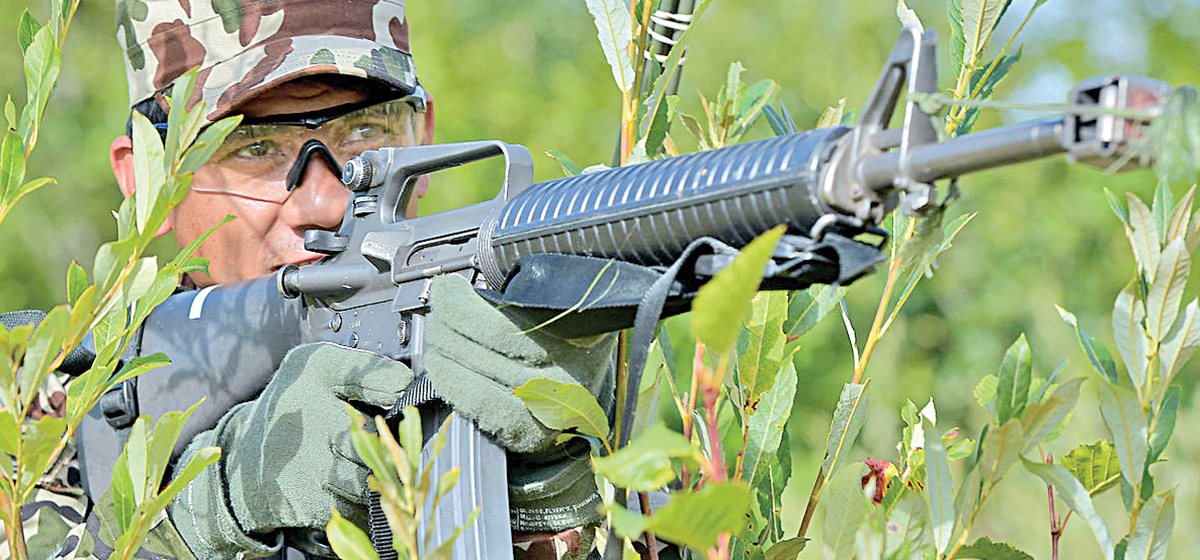
KATHMANDU, July 20: A fresh debate has been going on from parliament to social media about the current size of Nepal’s national army. The debate started especially after CPN-UML lawmaker Bimala Rai Paudyal and Rastriya Swatantra Party (RSP) lawmaker Dr Swarnim Wagle expressed their views in parliament that the number of the army should be reduced.
Both the lawmakers have not been able to give a clear reason for reducing the number of the national army. Lawmaker Paudyal has been criticized for not understanding the issue and importance of how the national army will be deployed and the morale will go down in the military circles.
People who are concerned with military affairs and know about it do not find the MP's idea of proposing a reduction of the army interesting. They have said that the two MPs have formed an opinion without even studying the Constitution of Nepal 2072 and the Military Act. However, no official statement on the matter has been made public by the army. "The army is not always preparing for war, it is preparing for the last war," said one of the Nepali army officers, “I am in doubt whether the Nepali Army has not been able to explain this matter to the parliamentarians or they are still holding this opinion even though they understand the army.”
After accommodating the then Maoist fighters in 2068, the number of the national army was about 95 thousand. MP Paudyal's statement that there is no war within the country and that it cannot survive if there is a war with its neighbors, the army did not accept the statement that so many troops are not needed. “Does the Ministry of Defense, which cannot protect the interests of our country, need so many troops or not? Let's review. There is no war within our country, and there is no possibility of war with our neighbors. Even now, we don't seem to be able to survive," she said, “They cannot communicate properly to protect the border, let alone protect it. Should such a ministry be supported or not? Do we need an 80-90 thousand strong army or not?” MP Paudyal, a former foreign minister, said that the army is not even able to protect the borders while proposing to cut the expenses of ministries including defense.
But CPN-UML's senior vice chairman and former defense minister Ishwar Pokharel has said that in the current situation where there is a strategic and criminal game going on to gradually weaken the nation of Nepal, when there is an urgent need to build a strong national power, it cannot be considered fair and harmless to raise matters to weaken the organs of the state. “Things have been raised against the Constitution of Nepal and the Military Act. It is unfair and harmful to raise issues in terms of weakening the organs of the state,” said Pokharel, who is also a former defense minister. Retired Major General Tara Bahadur Karki, said that it is not appropriate to say that the Nepali Army has become a burden from the point of view of cost reduction. "Geographical situation is as important as national power, politics is as important," Karki said.
Rastriya Swatantra Party lawmaker Swarnim Wagle also argued that 90,000 troops are not needed in Nepal, citing the example of reducing the number of troops by one-third in Sri Lanka. Before the Maoist conflict, the number of Nepali army was 45 thousand and it was increased to 90 thousand in the name of fighting the Maoists. But MP Wagle was of the opinion that even though the conflict was over, no attempt was made to reduce the number of troops. But in reply to Wagle's example, Major General Karki (Rtd) said that Sri Lanka already has more than 300,000 troops and even after 33 percent reduction, there are more than 200,000 troops. As of 2019, Sri Lanka had 317,000 troops. Even if the number of troops is reduced by one-third i.e. 33 percent, Sri Lanka will still have more than 200,000 troops. “It is meaningless to compare the 90,000 troops of Nepal with a population of 30 million with the army of Sri Lanka with a population of 22.16 million,” he said.
Earlier too, Chief of Army Staff Prabhuram Sharma had expressed his displeasure when the issue of reducing the number of army started. Last March, at the province-level ex-servicemen's conference at West Pritana headquarters in Pokhara's Fulbari, Sharma expressed his displeasure by saying that the job of determining the Nepali army is not of the self-proclaimed academics and self-proclaimed experts, security experts, but the government of Nepal.
“I would like to say that the Government of Nepal determines how many troops would be needed to fulfill the army’s responsibilities; it is not for the self-proclaimed academics and self-proclaimed experts, security experts sitting in NGOs, INGOs to determine, it is the job of the Government of Nepal,” Sharma had said. In the 11 years from 2053 to 2064, the number of soldiers increased by 50,000.
Even though this issue has been made as a means of cost reduction, the army and ex-army officials have not taken it positively. Also, after the issue of reducing the number of soldiers was raised, Deputy Prime Minister and Defense Minister Purna Bahadur Khadka clarified that the number of soldiers will not be reduced. “It is a matter of our national security policy. In that context, in the changing security environment of the world, every nation is facing its own security challenges and threats. Security challenges such as external attacks, internal conflicts, terrorism, economic crisis, and epidemics are causing difficulties in human life. In such a situation, there is no need to reduce the number of the army," he explained while speaking in parliament.
The game of weakening the organs of the state
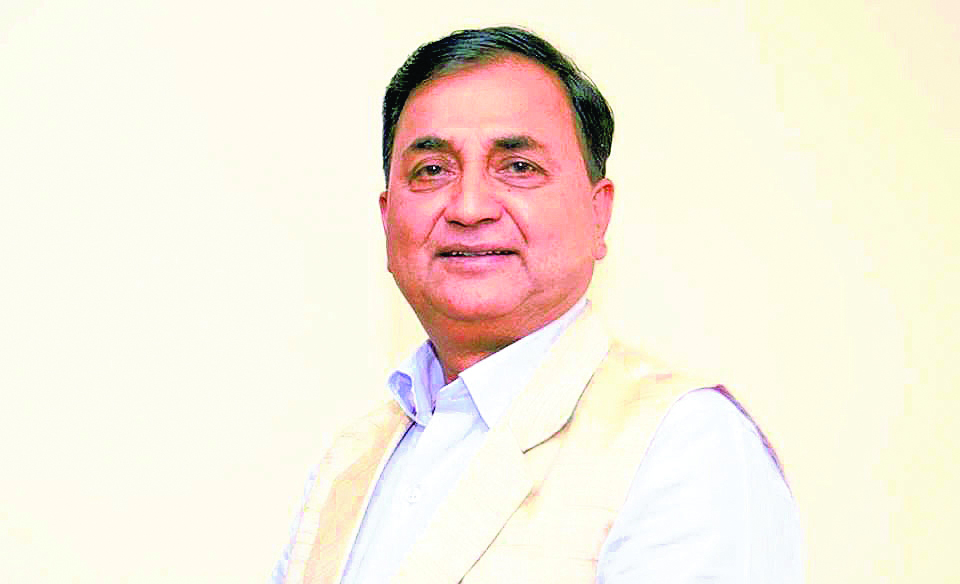 Ishwar Pokharel, Former Minister of Defence
Ishwar Pokharel, Former Minister of Defence
The view expressed by some persons at the responsible level regarding the defense situation of Nepal and the Nepali Army has been made public. Some people who are in important positions of making policies and laws, who have held important responsibilities in state administration in the past and who are counted among intellectuals/analysts have brought out such expressions through formal forums and public media. In this way, it does not seem that the ideas and expressions made public regarding the security of the Nepali Army and the country should be understood only as general news. It should be understood that these expressions have been brought out or introduced either without information or are guided by certain prejudices about the provisions made in the Constitution issued by the Constituent Assembly in 2072, the Military Act and the National Security Policy of Nepal. The Constitution of Nepal, Part 28, Article 267, Clause-1 states that it will be an inclusive Nepali Army organization committed to the Constitution for the protection of Nepal's independence, sovereignty, geographical integrity and national unity.
The primary responsibility of the Nepali Army is to protect the country's international borders. But according to international practice, it is necessary to understand that in Nepal, this work is being done by the Armed Police Force in coordination with the Nepali Army, as per the practice of deploying troops physically along the international border with weapons and guarding the border by the paramilitary forces.
Despite some shortcomings, the Nepali Army is an organization that has been playing a role since the past, accepting the legal and formal political leadership and becoming an important part of it. The Nepali Army is an organization that is interdependently connected with the unity and integration of Nepal; it is an organization that has been accepting formal and statutory political leadership and guidance, and it is an organization that has been fulfilling an important role in peacekeeping work in the international arena as well. It is an organization that has been fulfilling an important role within the country by connecting with the people in the planning and direction of development and disaster management. While commenting, it is necessary to understand these important issues related to the Nepali Army.
Certain things related to the Nepali Army can be a matter of discussion. But taking into account the sensitivity of this organization to the new threats developed due to the geo-political sensitivity of our country and the emerging bitter relations between the powerful nations, the necessary things can be done only within the appropriate time, place and process. But in the context of the ongoing social anarchy, cultural degradation, and economic disorganization in the country, in order to weaken the state itself, in the context of many games going on, things are being raised in relation to the military and national security, no matter how they are raised! At the present time, when there is a strategic and criminal game to gradually weaken the Nepali state, when there is an urgent need to build national power, it cannot be considered fair or harmless to raise matters to weaken the organs of the state.
In times of peace, there is no situation for the army to go to the border and challenge

Major General Tara Bahadur Karki (Rtd)
As a soldier, my view of the military aligns with its purpose, but it's essential to acknowledge that the general public and policymakers see it differently. In the current context, debating whether to reduce or maintain the army is not appropriate. However, that doesn't mean the matter should be ignored. We must consider Nepal's geographical situation, strategic importance, disaster management, and the Nepali Army's role in peacekeeping.
Additionally, we must analyze Nepal's geopolitics in relation to its neighboring countries to understand the significance of the military. Our army operates within a well-structured framework, and labeling a 100,000-strong army as a burden is unfounded. The army is actively involved in complex tasks like development and construction.
Instead of focusing on the exact size of the army required for development and construction, we should explore the possibility of deploying it in a layered manner. Currently, the military is engaged at three levels within the peace process.
It is attempting to create a false perception that the army is a burden beyond borders. However, a comprehensive study should present the structure and facts of the world's military, considering not only troop numbers but also the army's responsibilities, role, and historical context. Moreover, it's worth noting that the Border Army is not deployed during peacetime, which is a common practice worldwide.
While discussing these matters, one should speak with proper understanding. The army's role is not to incite war by being physically present at the border; rather, border security falls under the purview of paramilitary responsibility and administration. During conflicts, the army's presence plays a crucial role, not only in the initial stages but also in determining the victory.
Therefore, the state should decide the appropriate size and necessity of the army based on a thorough study of reality and its role.
You May Like This

By-Election: Voting underway in Ilam-2 and Bajhang-1(a)
ILAM, April 27: Voting for the by-election to elect a representative to the House of Representatives in Ilam constituency-2 and... Read More...
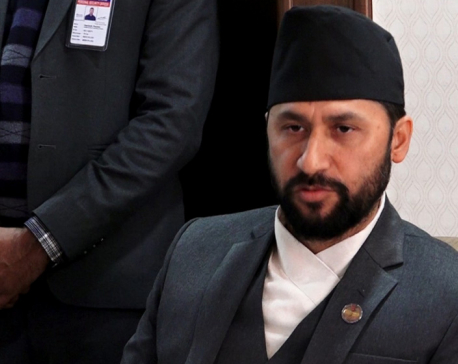
Home Minister denies any delay in providing relief to wildfire and fire victims
KATHMANDU, April 26: Deputy Prime Minister and Minister for Home Affairs, Rabi Lamichhane, has said that there has not been... Read More...

CM Kandel requests Finance Minister Pun to put Karnali province in priority in upcoming budget
SURKHET, April 26: Chief Minister of Karnali Province, Yam Lal Kandel, met Finance Minister Barshaman Pun and discussed the projects... Read More...



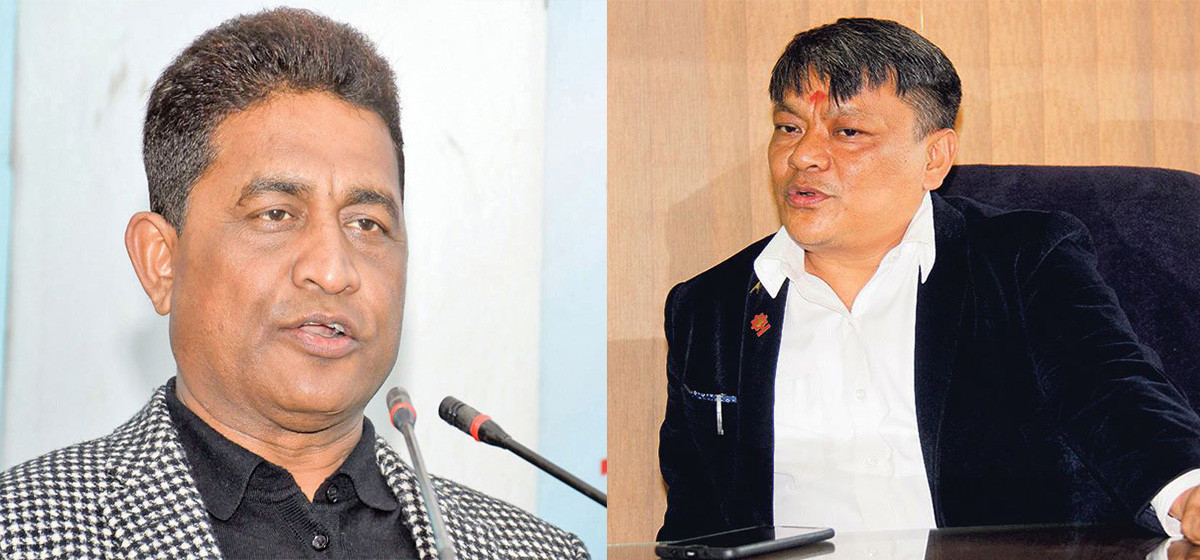
Just In
- KMC adjust office hours, services now start at 9AM
- Five-match T20 series: first match between West Indies 'A' and Nepal starts today
- Govt yet to pay Rs 60 billion to contractors
- Nepal’s poorest district identified as Bajura, richest as Mustang
- Wind storm likely at a few places of Koshi and Sudurpaschim
- EVs adoption in Nepal surge in Nepal with government support measures
- Mayors' Forum urges Finance Minister Pun to settle electricity dues
- By-Election: Voting underway in Ilam-2 and Bajhang-1(a)










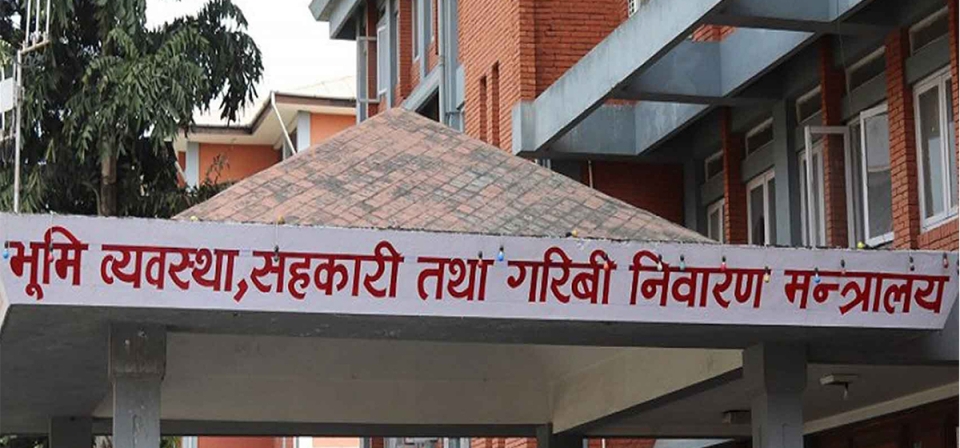



Leave A Comment